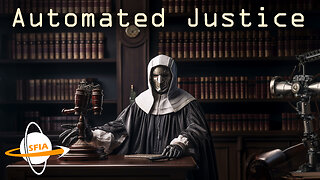The Covert War at Home: How Police Authorities in the U.S. Suppress Dissent
Read the book: https://amzn.to/3MisOTo
Brian Glick's book, The Covert War at Home, sheds light on the efforts of police authorities in the United States, particularly the Federal Bureau of Investigation (FBI), to destroy dissent and violate the civil liberties of individuals and groups. Despite Congressional hearings and FBI denials, Glick provides evidence of the FBI's use of infiltration, provocation, perjury, and even assassination to silence dissent.
One of the primary tactics that Glick highlights is infiltration. The FBI and other police organizations have been known to send agents to infiltrate activist groups and movements, gathering information on their activities and attempting to disrupt their efforts. This tactic has been used against a wide range of groups, from anti-war activists to civil rights organizations.
Another tactic that Glick discusses is provocation. Undercover agents or informants will often encourage activists to engage in illegal or violent actions, providing them with resources and even training. Once the activists have been caught, the police use these actions as evidence of criminal activity and justify their crackdowns on dissent.
Perjury and doctoring of evidence are also common tactics used by police authorities to build cases against activists. Glick provides numerous examples of FBI agents lying under oath or manipulating evidence in order to secure convictions against political dissidents.
Perhaps most shocking of all, Glick describes cases where police organizations have resorted to assassination to silence activists. The most well-known example is the case of Fred Hampton, the leader of the Black Panther Party in Chicago, who was killed in his sleep during a police raid in 1969. However, Glick provides evidence of other cases where activists were killed or disappeared under suspicious circumstances.
Despite the shocking revelations in his book, Glick provides guidelines for individuals and groups to recognize and counteract the efforts of police organizations to silence dissent. He recommends that activists take precautions to protect themselves from infiltration and provocation, and that they document any suspicious activity by police organizations. Glick also encourages activists to build strong networks of support and to use non-violent tactics to push for change.
Overall, The Covert War at Home is a sobering reminder of the lengths that police organizations will go to in order to maintain their power and suppress dissent. However, Glick's guidelines provide hope that activists can continue to push for change, even in the face of such daunting opposition.
-
 59:10
59:10
The Memory Hole
1 day agoA CIA War: Lies & Disinformation in American Establishment Press (1986)
568 -
 15:08
15:08
justintech
19 hours agoCorsair Vengeance i8200 Review - 14900K + 4090
42 -
 11:31
11:31
ryanhoguepassiveincome
13 hours agoTOP 5 NICHES 🔥 Print on Demand Niche Research # 207 — (5/12/2024)
34 -
 51:31
51:31
Science & Futurism with Isaac Arthur
21 hours agoAutomated Justice
7861 -
 28:23
28:23
TampaAerialMedia
20 hours agoMiami Travel Guide - Downtown, Key Biscayne, Coral Gables
111 -
 8:05
8:05
Ethical Preparedness
14 hours agoEASY Homemade Allergy Medicine - Medical Prepping for SHTF - Natural Medicine
51 -
 20:48
20:48
JoBlo Originals
1 day agoWhat Happened to WES STUDI?
9.2K5 -
 57:54
57:54
Proof Bread
22 hours agoSwabian Pretzels the Sourdough Way
14.7K6 -
 5:45
5:45
RealReaper
1 day agoThe Gay Black Doctor Who The Devils Chord Sucks
16.2K36 -
 34:35
34:35
Chrissy Clark
1 day ago $0.07 earnedCan Conservatives Believe In Climate Change?
18.1K41